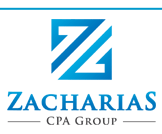| Audit Proof Your Business |
 |
 |
 |
 |
|
|
 If you’re like most people, the word “audit” itself will cause a momentary panic attack. Just receiving a letter from the IRS can cause bigger fear in their financial lives than receiving the dreaded letter from the IRS. They envision an IRS agent combing through their files looking for reasons to make them pay more taxes. While less than .5% of taxpayers are actually audited, there are some factors that can increase the likelihood of an audit. If you’re like most people, the word “audit” itself will cause a momentary panic attack. Just receiving a letter from the IRS can cause bigger fear in their financial lives than receiving the dreaded letter from the IRS. They envision an IRS agent combing through their files looking for reasons to make them pay more taxes. While less than .5% of taxpayers are actually audited, there are some factors that can increase the likelihood of an audit.
Here a few things that will make you more likely to be audited.
- Income from Self-Employment. The IRS is fully aware that there is a tendency for self-employed individuals to overinflate their deductions or take personal expenses as deductions. The IRS has profiles of typical expenses for different types of businesses and will run that against various returns. If your business deducts a higher percentage than the industry norm, than you could be drawing attention to yourself. In addition, self-employed individuals who have expenses more than two-thirds their income or show losses in consecutive years are the most likely to draw the IRS’s attention.
- Paying Subcontractors. The IRS is determined to make sure that businesses are not trying to avoid payroll taxes by paying their “employees” as subcontractors. If you have high amount of payments to contract labor or services, then you raise your risk of being audited. To find out the criteria the IRS uses to determine if someone is an employee or a subcontractor, read this.
- High Expenses for Your Industry. The IRS has profiles of typical expenses for different types of businesses and will run that against various returns. If your business deducts a higher percentage than the industry norm, than you could be drawing attention to yourself. For example, if a typical restaurant has cost of goods sold at 30% of sales, and you claim 40%, you increase your chance of being audited.
- High Income. If your taxable income is over $100,000, you have a larger target on your back. Unfortunately, the more you make, the more the IRS can potentially collect in an audit.
- Prior Audit Resulted in Additional Taxes. If you were audited before, and they adjusted your return, then they will likely come calling again to see if you’ve changed your ways.
The IRS agent’s job in an audit is to examine your financial records to determine two things: do the income and expenses match the bank records and are the income and expenses legitimate. The agent has the authority to recreate your tax return based on the information you provide them. The agent can increase the amount of revenue you reported based on bank deposits, and then can then lower your expenses by disallowing deductions that you don’t have the proper backup to support.
Here are 5 things you can do to protect your business and make your business audit-proof.
- Don’t comingle. Make sure your business has its own bank and credit cards. Not only will this make your accounting simpler, but you will be protecting your personal accounts from the IRS’s eyes. If an IRS agent sees personal expenses mixed in with business expenses, then they will be more likely to challenge the legitimacy of your business deductions.
- Track all deposits. Regardless of the intent or scope of an audit, one of the first things an agent will do will add up all of your deposits and compare it against the income you reported on your return. If there is a significant discrepancy, it will be up to you prove that the additional deposits were not income. I recommend copying the deposit slip and all related checks for every deposit that is made, but it’s absolutely critical to do this for non-income deposits like loans, deposits from your personal account, etc. It will be up to you to prove that those deposits should not be included as income and therefore taxed. Nobody wants to pay taxes on their own money.
- Keep your receipts. The thought of keeping every receipt makes most business owners groan, but it is up to you to validate every business deduction that you take. Simply showing a charge on a credit card may not be enough. A $150 charge at wal-mart could be for paper and toner, or it could be for your kid’s Christmas presents. Without the physical receipt, there is no way for the IRS to know. Be especially careful to keep receipts for meals, travel, home office, or any other deduction that may be higher than the industry average. The easiest way to do it is to create a file or folder for each type of expense and collect your receipts by category.
- Keep a record of your auto miles. The auto expense deduction is a great deduction. You can reimbursed for the expenses related to driving around for business purposes. You don’t need to run around town with a mileage log in your glove compartment, but you should keep a running calendar or excel spreadsheet that you update weekly or monthly.
- Track your subcontractors. Make sure you have all subcontractors fill out a w-9 before you pay them. If you don’t issue 1099s to all non-corporate contractors that you pay for services, you will be a prime target for an audit. In addition, make sure you get invoices from your subcontractors. If they are filling out timesheets, then they could be reclassified as employees.
Please contact us today for a free consultation to see how we can help you with your tax and accounting needs!
|
|














 If you’re like most people, the word “audit” itself will cause a momentary panic attack. Just receiving a letter from the IRS can cause bigger fear in their financial lives than receiving the dreaded letter from the IRS. They envision an IRS agent combing through their files looking for reasons to make them pay more taxes. While less than .5% of taxpayers are actually audited, there are some factors that can increase the likelihood of an audit.
If you’re like most people, the word “audit” itself will cause a momentary panic attack. Just receiving a letter from the IRS can cause bigger fear in their financial lives than receiving the dreaded letter from the IRS. They envision an IRS agent combing through their files looking for reasons to make them pay more taxes. While less than .5% of taxpayers are actually audited, there are some factors that can increase the likelihood of an audit. 